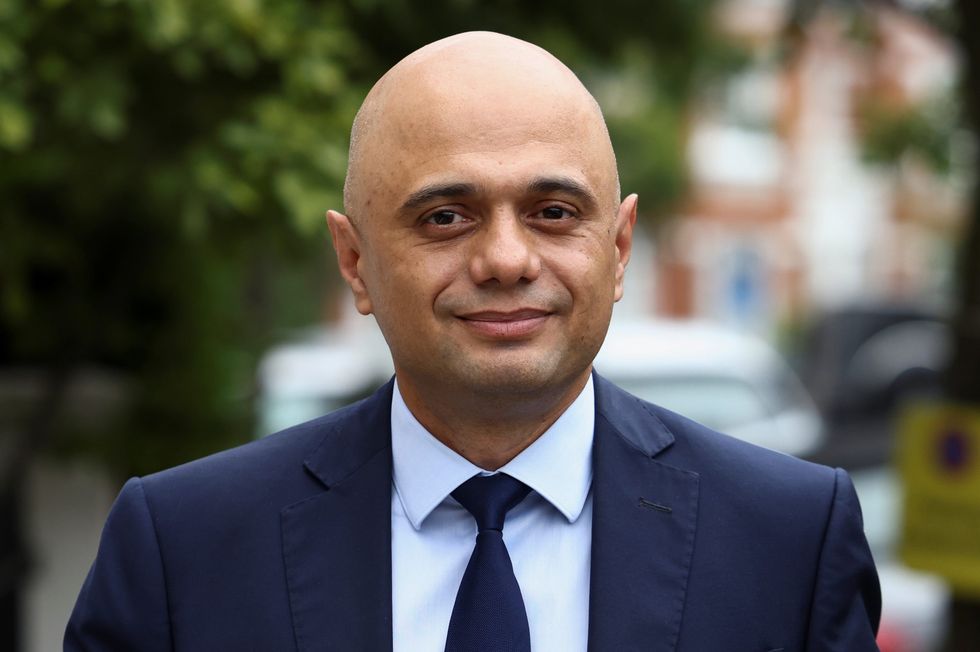EVEN though my family didn’t celebrate it, I learned a lot about Diwali growing up and saw how much it means to people.
From the kids bringing halwa and jalebi to the playground, to the decorations at Dr Gandhi’s clinic on Bristol’s Stapleton Road, it was always a point of light at a dark time of year.
It speaks to how far weve come as a country that so many of us, regardless of our faith, can relate to the messages of Diwali – the triumph of light over darkness and the power of knowledge over ignorance.
But on becoming health and social care secretary – the first from an ethnic minority background – I was struck by how much further we will have to go, especially in healthcare.

There are long-standing inequalities, like how black women are five times more likely to die from complications during childbirth than white women. And new ones are still being brought to the fore by the pandemic – black and Asian British people are more likely to die from Covid-19 than others, yet are less likely to accept our offer of vaccination against the virus.
These disparities are not only unjust, they are also dangerous. My immediate priority has been to get us and keep us out of this pandemic.
To anyone who hasn’t accepted our offer of the jab, I urge you to do so. And for those who are now becoming eligible for boosters and third doses, it’s vital you get that extra protection as we go into the winter months.
After all, if you’ve already gone and got two jabs, there’s no good reason not to get a third. We know that the more people get jabbed, the less likely the virus is to spread. Equally, we know that wearing masks in crowded spaces and getting tested regularly can keep us all safe.
That is knowledge everyone should act on when they gather to celebrate this year. I don’t want any community in this country – south Asian or any other – to miss out on the chance to keep themselves, their friends and their family safe.
We’re also rolling out the country’s biggest flu programme in history, with 35 million people eligible for a free vaccine – and it’s being backed by some of our biggest high street pharmacies. So as we head into winter, it’s vital eligible people get both their booster jab and their flu jab.
Beyond this pandemic, I’m determined that no community in this country should experience worse health than any other. I’m asking our new Office for Health Improvement and Disparities to transform the way we improve health and prevent disease.
Much of this begins by catching diseases earlier. GPs are often the first to spot early signs of a problem, so we’ve given them a further £250 million to help open up more appointments this winter.
We’re also improving access to screening and diagnostics, with artificial intelligence (AI) taking on an ever-greater role in diagnosing conditions like heart disease and cancer.
Technology, particularly AI, can be an incredible force for good. At the same time, if we only train our AI on data from white patients, it won’t help our population as a whole.
So last week, I gave the green light to a series of hi-tech initiatives to tackle health disparities in the UK, from better screening for complications from diabetes to ensuring the UK’s health data truly reflects the diverse country we are.
We’re also piloting a new health incentives scheme to find innovative ways to help people lead healthier lives and reduce the strain on the NHS. I’m determined we all benefit from new technology, and no one is disadvantaged because of their race.
Equally, gender must be no disadvantage. We will launch the first-ever Women’s Health Strategy, which aims to put an end to the ‘male by default’ culture we’ve had for far too long in healthcare.
The inequalities in women’s healthcare are very often racial disparities too, such as those in maternity. The NHS is now working to ensure at least 75 per cent of pregnant black, Asian and minority ethnic women are cared for by the same midwives during and after pregnancy by 2024, as part of our Equity and Equality Strategy.
When we talk about levelling up in health, this is what it looks like. My very first interactions with our healthcare system were when I would go and translate for my mum at Dr Gandhi’s clinic, and now I’m the one whose responsibility it is to make sure the system works for everyone.
It’s a responsibility that I take seriously; to learn the lessons of the pandemic – and the last 50 years – and do all I can to make sure everyone has the same opportunity to lead longer, healthier and happier lives.




Sajid Javid: How AI can help provide better health outcomes for BAME groups